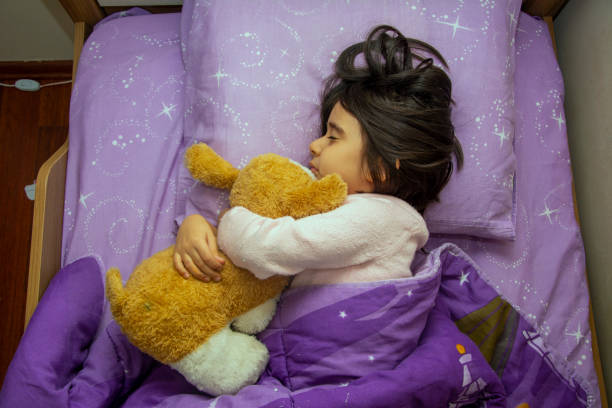How Much Sleep Do Children Need?
When it comes to child development, one of the most underrated — yet absolutely essential — factors is sleep. But exactly how much sleep do children need at each stage of their growth? Whether you’re a new parent, a curious caregiver, or just someone wanting to ensure the little ones in your life thrive, this guide will break down everything you need to know.
Why Sleep Is Crucial for Children
Sleep is not just about rest — it’s the time when the brain and body recharge, grow, and process all that’s been learned during the day. From building strong bones and muscles to reinforcing memory and concentration, how much sleep children need directly affects their emotional and physical health.
Research from the NHS and National Sleep Foundation shows that insufficient sleep in children can lead to issues like poor academic performance, emotional instability, and even obesity.
How Much Sleep Do Children Need by Age
Children’s sleep needs change dramatically as they grow. Below is a detailed age-by-age breakdown to help answer the question: how much sleep do children need?
Newborns (0–3 Months)
Recommended: 14–17 hours/day
Sleep is scattered in short bursts for feeding and cuddles.
Infants (4–11 Months)
Recommended: 12–15 hours/day
By six months, most babies sleep longer at night with 2–3 naps.
Toddlers (1–2 Years)
Recommended: 11–14 hours/day
One daytime nap becomes typical, alongside a longer night’s sleep.
Preschoolers (3–5 Years)
Recommended: 10–13 hours/day
Naps start to phase out; consistent bedtimes become crucial.
School-Age Children (6–13 Years)
Recommended: 9–11 hours/night
School and activities begin to eat into sleep time — balance is key.
Teenagers (14–17 Years)
Recommended: 8–10 hours/night
Despite their growing independence, teens need nearly as much sleep as younger kids.
Knowing how much sleep children need according to their age helps establish healthy sleep habits that benefit them for life.
What Happens When Children Don’t Get Enough Sleep?
Chronic sleep deprivation in children is more than just crankiness in the morning. It can lead to:
Trouble concentrating in school
Weakened immune system
Behavioural problems
Mood swings or increased anxiety
Slower growth and development
So when we ask ourselves how much sleep do children need, we must also understand the consequences of not meeting those needs.
Signs Your Child May Be Sleep-Deprived
Not sure if your child is getting enough rest? Look out for these common symptoms:
Frequent meltdowns or tantrums
Difficulty waking in the morning
Falling asleep during short car rides
Poor academic performance
Hyperactivity or inattentiveness
Addressing sleep deprivation starts with recognising the signs early. Understanding how much sleep do children need is only useful if we apply it proactively.
Tips to Improve Your Child’s Sleep Routine
Getting children to bed on time is often easier said than done. But a few key strategies can make all the difference:
Create a consistent bedtime routine — bath, storytime, cuddles.
Set regular sleep and wake times, even on weekends.
Avoid screens at least 1 hour before bedtime.
Use blackout curtains to reduce exposure to light.
Encourage physical activity during the day, not close to bedtime.
These habits reinforce a natural body clock and make bedtime smoother. The earlier these habits are formed, the easier it is to meet the sleep guidelines for how much sleep children need.
Creating the Perfect Sleep Environment
Environment matters — more than most people think. Here’s how to ensure your child’s room supports restful sleep:
Temperature: Keep the room cool, around 18–20°C.
Lighting: Dim lights signal it’s time to sleep.
Sound: Use white noise machines if needed to block disruptions.
Bedding: Comfortable, age-appropriate mattresses and bedding matter.
Safety: For babies, keep the crib free of toys and blankets.
Remember, the right environment supports how much sleep children need — and helps them fall asleep faster.
Common Sleep Challenges and How to Tackle Them
Every parent faces sleep battles. Here are the most common ones — and how to deal with them:
Sleep Regression
Occurs around 4 months, 8–10 months, and 18 months. Maintain routines, and be patient.
Nightmares and Night Terrors
Offer comfort, keep lights low, and reassure. Avoid scary stories before bed.
Resistance to Bedtime
Use visual schedules, offer choices (pyjamas, bedtime book), and reinforce rules.
Knowing how much sleep children need also involves tackling the hurdles that prevent them from getting it.
FAQs
1. How much sleep do children need at different ages?
Newborns may sleep up to 17 hours a day, while teens still require around 8–10 hours per night. Refer to the age-based chart above for detailed guidance.
2. What time should my child go to bed?
It depends on their wake time. For example, if your 6-year-old wakes at 7 AM, aim for a bedtime around 8 PM to ensure 11 hours of sleep.
3. Can children sleep too much?
Generally, children sleep what they need. However, excessive daytime sleep could be a sign of poor quality nighttime rest or an underlying health issue.
4. Does screen time affect how much sleep children get?
Yes. Blue light from screens can delay melatonin release, making it harder for children to fall asleep and stay asleep.
5. Are naps necessary?
Yes — especially for children under age 5. Naps help meet their total sleep requirement and boost cognitive development.
Conclusion: How Much Sleep Do Children Need?
In summary, how much sleep do children need varies by age, but one thing is clear — sleep is a cornerstone of healthy childhood development. From infants needing up to 17 hours a day to teens requiring around 9 hours, sleep shapes brain development, mood regulation, and physical health.
By prioritising good sleep habits and understanding the unique needs of children at every stage, we give them the best chance to grow, learn, and thrive.
Ready to Explore More?
Got questions about your child’s sleep routine? Drop them in the comments below! Or subscribe to our newsletter for more evidence-backed parenting tips, expert insights, and bedtime solutions that work. Let’s help your child rest better — tonight and every night.Somatic Yoga.

